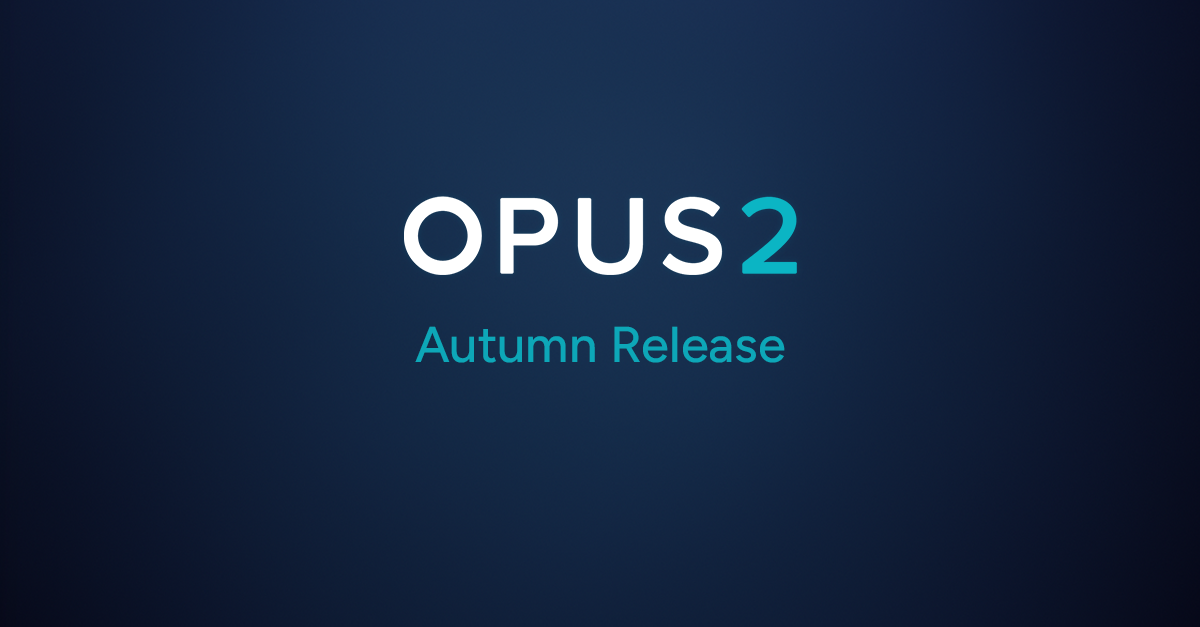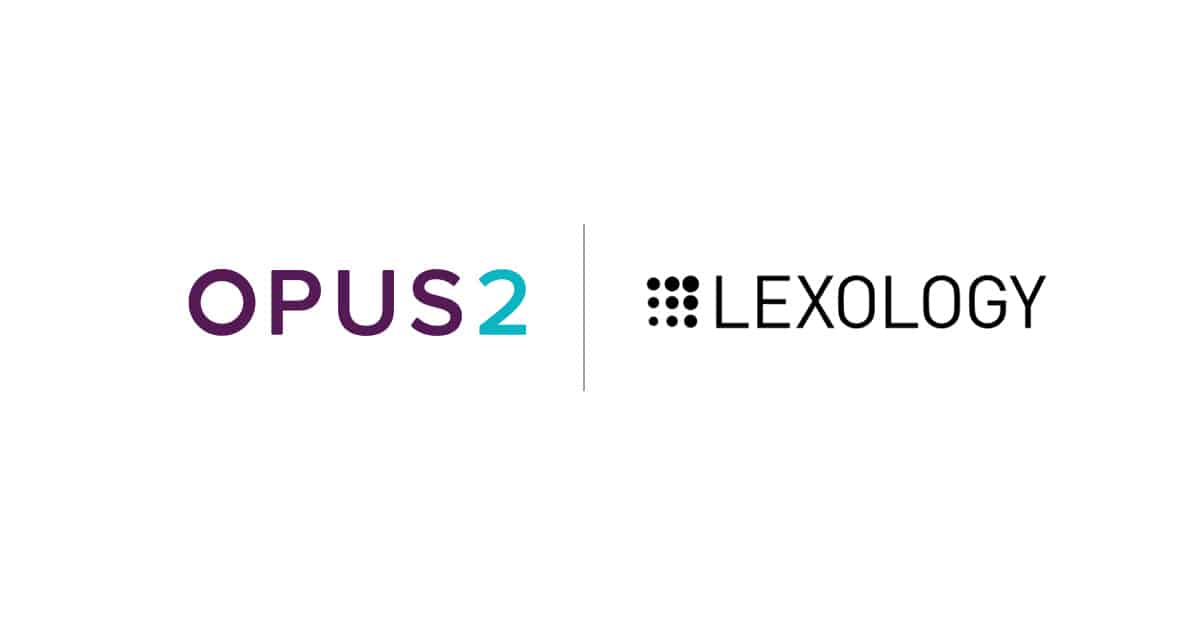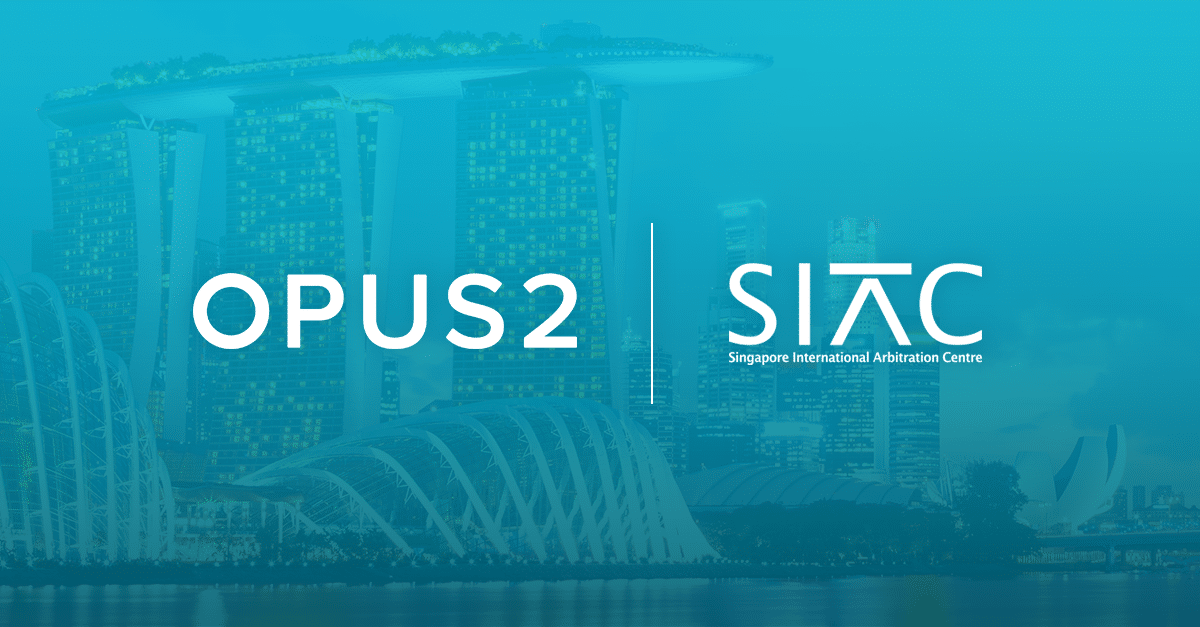Keeping up with the litigation landscape could be a full-time job. And it’s hard to find the time. But here, in a few minutes, you can quickly scan summaries of the latest litigation news from around the world. From there it’s up to you – you can read on, or move on with your day.
Litigation news September-October 2024
Law Society of England & Wales publishes International Data Insights Report 2024
The Law Society of England & Wales – 10 September 2024
The Law Society of England & Wales has published the 2nd edition of its International Data Insights Report. The report compares the performance of the UK’s major dispute resolution centres with international courts and arbitration centres in other jurisdictions, including New York, Dubai, Singapore, Qatar and Hong Kong. It also assesses the economic value of English law.
Key takeaways from the Report include:
- The London Commercial Court (LCC) remains the leading international court for the resolution of complex commercial disputes.
- The LCC delivered 212 written judgments between October 2022 and September 2023. In comparison, during the same period, the New York Commercial Division delivered 130 written judgments, while the Dubai Financial Centre’s Civil and Commercial Division delivered 87 written judgments.
- English law is the preferred governing law for international commerce, across a range of industries, and is frequently chosen by parties as the governing law in international arbitration.
Civil Justice Council of England & Wales publishes interim report and consultation on litigation funding
Law Society Gazette – 31 October 2024
The Civil Justice Council (CJC) has published its eagerly anticipated interim report and consultation on third-party litigation funding (TPLF), as reported by the Law Society Gazette. The CJC’s review was commissioned following the UK Supreme Court’s (UKSC) ruling of PACCAR in July 2023. The UKSC held that TPLF agreements which calculated the funder’s payment by reference to a percentage recovered in the event of a successful outcome by the funded party fell within the scope of a damages-based agreement (DBA). As such, those agreements had to comply with the DBA Regulations. This was not previously considered to be the case, and called into question a number of TPLF agreements.
The consultation, which is open until 31 January 2025, include questions as to whether TLPF should be regulated (and if so, how), whether funders’ returns should be capped, and the role of the courts in controlling TPLF.
Following the consultation, the CJC expects to publish its final report by the summer.
Report by European Law Institute opposes regulation of third-party litigation funding
Legal Futures – 16 October 2024
The European Law Institute’s (ELI) Principles Governing the Third Party Funding of Litigation has rejected regulation of third-party litigation funding (TPLF), Legal Futures reports.
While the ELI acknowledges that regulation can offer certainty and is “advocated by many of those who are concerned by the growth and impact of the TPLF market”, its conclusion is that certainty in this context can create problems. For instance, regulation which affects the risk/reward balance for funders “could result in funders ceasing to offer funding in the regulated territory”, which the ELI contends could lead to serious access to justice issues. Its view is that “regulation is only appropriate where there is an identifiable problem or a market failure”.
The proposed approach is a set of 12 key principles, which provide an outline of potential safeguards to incorporate into TPLF agreements, to ensure the TPLF market operates fairly and benefits both funders and funded parties. The principles deal with “points of controversy” including transparency, capital adequacy of funders, and control over proceedings.
Master of the Rolls speaks at Legal Geek London 2024
Judiciary.uk – 16 October 2024
Sir Geoffrey Vos, the Master of the Rolls (a judge of the Court of Appeal in England & Wales and President of its Civil Division, gave a speech on The Digital Trading Revolution: Underpinned by Law at the 2024 Legal Geek Conference.
Key points on the relevance of the law to the successful adoption of AI include Sir Geoffrey’s comments that:
- Developments in AI will put regulation under the EU’s AI Act (which ultimately makes humans accountable for AI decisions) to the test. While lawyers and judges will want to retain “complete human oversight” this will not be possible “without spending masses of time and money” to check the output of AI.
- Citizens and businesses will use AI tools to achieve effective legal solutions more quickly and efficiently than humans can achieve, creating legal, regulatory and ethical “conundrums”, where there may be “no economic choice but to accept the AI’s work product”.
- While the law is “critical at every level to the successful adoption of technology”, lawyers will need to make sure that regulation “supports rather than hampers innovation”.
Delaware Supreme Court publishes interim policy on use of generative AI
Courts.delaware.gov – 21 October 2024
Delaware’s Supreme Court has published an Interim Policy on the use of generative AI by judicial officers and court personnel, the purpose being to ensure “the safe and appropriate use of generative AI by all judicial branch judicial officers, employees, law clerks, interns, externs, and volunteers (“Authorized Users”).
The interim policy allows for limited use of “Approved GenAI” (which has been approved by the Administrative Office for Authorized Users to use in the performance of their duties), and explains that Authorized Users:
- May not delegate their decision-making to Approved GenAI, and must exercise caution when relying on Approved GenAI’s output as they are ultimately responsible for its output.
- Should not use Approved GenAI without training in the technical capabilities and limitations and should have a working knowledge and understanding of the tools.
- Must ensure that use of GenAI complies with all applicable laws and “judicial branch policies”.
Australian lawyer reported to regulator for filing fake cases created by generative AI
Legal IT Insider – 15 October 2024
An Australian lawyer has been referred to the Office of the Victorian Legal Services Board and Commission for filing a summary of authorities which he prepared using a generative AI research tool, without verifying its accuracy.
In his defence, the lawyer explained he did not fully understand how the research tool worked.
The judge deciding the case referred to guidelines, including from Victoria’s Supreme Court (which we reported on in our May-June litigation news), which requires practitioners to ensure they understand the way generative AI tools work. She also said that “generative AI does not relieve the responsible legal practitioner of the need to exercise judgment and professional skill in reviewing the final product to be provided to the court”.
The judge concluded that it was in the public interest for the lawyer to be referred to the Office of the Victorian Legal Services Board and Commission, “given the increasing use of AI tools by legal practitioners in litigation more generally”.
Litigation news archive
July-August 2024 litigation news
Copyright infringement class-action against Anthropic over its AI
Reuters – 21 August 2024 and Baker Hostetler: Case Tracker: AI, Copyrights and Class Actions
Three authors have filed a class-action lawsuit in the Northern District of California against Anthropic over its AI-powered chatbot, Claude. The authors allege that Anthropic infringed theirs and others’ copyrighted works by using pirated versions to teach Claude to generate human-like text responses.
This is the second case to be brought against Anthropic, following a similar lawsuit which started in October 2023, where a group of music publishers, alleged that Anthropic created and used unauthorised copies of copyrighted lyrics to train Claude. On 1 August 2024, the plaintiffs filed a motion for a preliminary injunction against Anthropic, with Anthropic filing a motion on 15 August 2024 to dismiss the case. The hearing on both motions is currently due to take place on 10 October 2024.
These cases follow an increased trend by the creative industry to seek to assert their rights against technology companies using their content to train AI models.
Delays to reintroduction of UK Litigation Funding (Enforceability) Bill
UK Parliament: Ministry of Justice – 1 August 2024
The Ministry of Justice has confirmed that the reintroduction of the Litigation Funding (Enforceability) Bill will be delayed until after the Civil Justice Council (CJC) completes its review of the third-party funding market, which is expected to be completed in summer 2025.
The Bill was introduced by the last UK government, following the UK Supreme Court’s decision in R (PACCAR Inc and others) v Competition Appeal Tribunal and others [2023] UKSC 28, in which it held that most existing legal-funding agreements are damages-based agreements and are therefore likely to be unenforceable. The Bill was unable to be enacted before Parliament was dissolved in May 2024.
A written response by the Ministry of Justice on 1 August confirms that the government will take “a more comprehensive view of any legislation to address issues in the round” once the CJC’s review concludes. We will continue to monitor developments in this regard.
Changes to Civil Procedure Rules (England & Wales)
Legislation.gov.uk – 29 July 2024
A suite of changes to the Civil Procedure Rules (England & Wales) have been introduced under the Civil Procedure (Amendment No. 3) Rules 2024, which were laid before Parliament on 28 July 2024, and come into force on 1 October 2024. The changes include:
- A specific requirement to promote or use alternative dispute resolution (ADR), with judges empowered to order the parties to engage in ADR.
- Amendments to the Fixed Recoverable Costs (FRC) regime, following the Ministry of Justice’s consultation on FRC in July 2023, including the introduction of a new costs form “Precedent U” as a result of the new “Fixed Costs Determination” procedure.
- Updates to the provisions on contempt proceedings, including the addition of an express warning that the court may draw adverse inferences from a respondent who exercises their right to remain silent. This follows case law and “aligns with the position in criminal proceedings”.
Dutch court uses ChatGPT for fact-checking in neighbour dispute
Litigation news archive
Legal IT Insider – 8 August 2024
A Dutch tech publication has revealed that a Dutch judge used ChatGPT as a source of information for their ruling, Legal IT Insider reports.
In a dispute between neighbours over solar panels, the judge used ChatGPT to ascertain the average lifespan of a solar panel and the average price of electricity. The judge did not use ChatGPT to assist with the ruling. The judge’s use of ChatGPT for fact-checking has been criticized locally, particularly given the risk of hallucinations.
In England & Wales, guidance introduced by the Courts and Tribunals Judiciary in December 2023 puts personal responsibility on judicial office holders for material which is produced in their name. It goes on to say that provided the guidelines are appropriately followed, there is no reason why generative AI could not be potentially useful.
In its article, Legal IT Insider calls for judges to receive at least some “basic training on what generative AI is and does”.
Round-up of latest AI regulations in APAC region
Sidley Austin – 16 August 2024
Sidley Austin has published an update on recent AI regulatory developments in APAC. The update provides recommendations for APAC businesses to follow, including reviewing the extent to which they are impacted by AI and develop AI governance frameworks to support compliance with applicable legal and regulatory requirements.
Countries covered by the update include:
- Singapore
In May 2024, the government introduced the Model AI Governance Framework for Generative AI, which sets out best practice principles for the responsible development, deployment and use of AI technology across the AI supply-chain. - Japan
The “Basic Law for the Promotion of Responsible AI” is at a preliminary stage, with the government aiming to finalise and propose the bill by the end of 2024. Only “specific AI foundational models” with significant social impact appear to be likely targets for this law. - India
It has been reported that a new AI advisory group has been formed, tasked with developing a framework to promote AI innovation and minimizing the misuse of AI.
May-June 2024 litigation news
Portland Communications 2024 Commercial Courts Report
Portland Communications – 22 May 2024
Portland Communications has published its annual Commercial Courts Report, which analyses judgments from the London Commercial Courts, to highlight notable trends from the year. This year’s report also offers insights from commercial courts in other jurisdictions.
Points of interest include:
National polling on global litigation trends
This year, Portland explored public perceptions on legal trends including ESG litigation and the role of AI in the legal industry. In relation to ESG litigation, 62 percent of those surveyed are in favour of shareholders being able to sue companies about their ESG policies. Interestingly on AI, the public remains “largely sceptical” of the use of AI by judges in England and Wales.
International litigants in the London Commercial Courts
64 percent of litigants over the past year were international, representing an 8 percent increase since last year. The top five nationalities of litigants in the London Commercial Courts, after the UK, were Ireland, the USA, Switzerland, and the UAE. The number of Russian litigants has decreased by more than half, from 58 in 2022-23 to 27 in 2023-24.
Emerging jurisdictions
The Report selected commercial courts from five jurisdictions which it analysed as examples of how the international court market is progressing: Netherlands Commercial Court, Qatar International Court, Astana International Financial Centre, Dubai International Financial Centre, and Singapore International Commercial Court.
London International Disputes Week round-up
The Law Society Gazette – 10 June 2024
Following London International Disputes Week in early June, the Law Society Gazette published an article highlighting some key takeaways from the main conference, based on the theme “global challenges and opportunities”.
Points to note include:
Impact of AI in litigation
No conference would be complete without a discussion about AI, including a discussion about its impact on the billable hour, which it was predicted will be replaced with more “creative solutions” as suggested by barrister Racheal Muldoon.
Proposals for a London dispute resolution committee
The Lady Chief Justice called on all dispute resolution practitioners to work together to ensure London’s continued status as a global legal centre. She proposed the creation of a London dispute resolution committee to share experience and provide guidance.
Reach and scope of ESG claims
A panel discussed a “dramatic shift” in the reach and scope of ESG claims, from human trafficking to climate change. Shaheed Fatima QC highlighted that both the public and private sector would need to prepare themselves for such claims.
US Court of Appeals for the Fifth Circuit discard proposals on AI disclosure
Law.com – 11 June 2024
The US Court of Appeals for the Fifth Circuit has discarded proposals which would have required lawyers to disclose if they used generative AI to prepare a brief, Law.com reports. If adopted, lawyers would have had to certify that no generative AI was used in drafting documents presented for filing, or, if it was used, that all generated text, including citations and legal analysis, had been reviewed for accuracy and “approved by a human”.
The decision was broadly welcomed because of the risk that it would discourage the use of technology and the concern that the proposed rule was too vague. Indeed, no definition of generative AI was provided, which would make it difficult to know when the rule would apply.
The article points out that inconsistent approaches in the use of generative AI in the preparation of court filings across district courts in the USA, could increase the cost of litigation. In addition, it could increase the risk of errors for lawyers who practice across multiple courts, according to Maura Grossman, research professor at the University of Waterloo and adjunct professor at Osgoode Hall Law School.
Guidance on the responsible use of AI in litigation published by the Supreme Court of Victoria (Australia)
Supreme Court of Victoria – May 2024
The Supreme Court of Victoria (Australia) has published guidance on the responsible use of AI in litigation.
The guidance sets out:
Use of AI by judicial officers
Judicial officers are referred to AI Decision-Making and the Courts: A guide for Judges, Tribunal Members and Court Administrators, which sets out the key challenges and opportunities of AI and automated decision-making in courts and tribunals.
Principles for use of AI by litigants
Parties and practitioners should ensure their understanding of the way any AI tools they use work, including any limitations. The guidance also states that ordinarily, parties and practitioners should disclose the use of AI tools to each other.
Application of principles
The guidance provides examples of where AI can be used, for example in Technology Assisted Review (TAR) and highlights the risk of inaccurate results from generative AI. Practitioners are warned of their need to exercise judgment and professional skill in reviewing any final information based on results from generative AI that is provided to court.
Civil Mediation Council publishes article on the use of AI in mediation
Civil Mediation Council – 24 May 2024
An article published by the Civil Mediation Council explores how AI is changing the way disputes are resolved, and some ethical questions surrounding its use.
Points to note include:
To address such concerns, two approaches are proposed. Firstly, “confidentiality by design” where privacy and security are built into the design of AI-powered tools from the outset, so that, for example, predictive models are trained using anonymised data. Secondly, informed consent, so that parties in mediation are fully informed about the use of AI-powered tools and can opt out if they have concerns about the privacy or security of their information.
The use of AI has the potential to improve the outcome of dispute resolution, particularly its efficiency and cost-effectiveness. For example, using machine learning to predict risk preferences can support mediators to gain a better understanding of a party’s attitude to risk. Mediators can use this information to tailor their approach depending on whether a party is more risk-averse or risk-tolerant.
Particular issues arise in relation to confidentiality when considering the use of AI in dispute resolution. The use of AI in mediation, for instance, may challenge parties’ “willingness to share sensitive information and explore creative solutions” because of the risks to confidentiality.
March-April 2024 litigation news
Weil’s 2024 Litigation Trends Report
Weil – 9 April 2024
Weil’s global Litigation Department published their 2024 Litigation Trends Report, featuring insights from partners, counsel, and associates across the Litigation Department. The report explores business and legal risks they suggest monitoring in the “near- and long term”. The report features insights across a range of litigation practice areas, including antitrust enforcement, class actions, and complex commercial litigation.
Key takeaways from the report include:
Antitrust enforcement
Companies need to maintain their focus on regulatory risks, and to plan for them as part of their business and corporate strategy. This is particularly important due to increased antitrust scrutiny of transactions and conduct in 2024.
Class actions
There is also increased scrutiny in the class action settlement process by the courts, resulting in strategic dilemmas for both plaintiffs and defendants. Parties must strike the right balance in coming to a settlement figure to minimize the risk of settlement disapproval by the courts.
Complex commercial litigation
A key area for consideration is the rise of AI privacy litigation, including complaints that technology firms are collecting personal and private information, including biometric data, without consent, to train their AI tools. Companies can mitigate the risks associated with rapid AI growth by tracking changes in applicable laws and policies.
Publication of King’s Bench Division Guide 2024
Judiciary.UK – 19 April 2024
For litigators in England and Wales, the King’s Bench Division has published its 2024 Guide with further changes since its full revision in 2022.
The updated guide includes changes to:
Open justice and anonymity
The fundamental principle of open justice means that the administration of justice takes place in public. Orders for anonymity will not be made just because the parties consent. Any departure from this principle should be the “minimum strictly necessary in the interests of justice and for the proper administration of justice”.
Contempt applications
Directions for a contempt application hearing may include provision for the defendant to seek to obtain legal advice. Non-means tested legal aid may be available for defendants in contempt proceedings.
The filing of trial bundles
Trial bundles must be provided in paper format unless otherwise ordered. An electronic version must be filed if ordered by the court. Hard copy trial bundles must be filed not more than seven days and not less than three days before the start of the trial.
London Circuit Commercial Court Practice Note published on lodging bundles and skeletons for applications
Judiciary.UK – 24 April 2024
His Honour Judge Mark Pelling KC, the Judge in Charge of the London Circuit Commercial Court (LCCC), has published a Practice Note on the lodging of bundles and skeleton arguments for applications.
Practitioners should know:
- The LCCC operates electronically by default, which means that bundles must be lodged electronically.
- The requirements set out in paragraph F6.3 of the Commercial Court Guide, which provide the deadlines by which application bundles, the Case Management Bundle, and skeletons should be filed, also apply in the LCCC.
- Where these deadlines are not complied with, the application may be removed from the list and will be rescheduled on the first available date convenient to the LCCC. In addition, a cost sanction may also be imposed.
- Bundles in the LCCC must be prepared in accordance with Appendix C of the Circuit Commercial Court Guide. In particular, the Practice Note directs parties to ensure that:
- The PDF page numbering matches the pagination of the bundle.
- The documents in the PDF are bookmarked.
- Each page of each document included in the bundle has been OCR’d.
- Where bundles do not comply with Appendix C and in particular the points set out above, a costs sanction is likely to be imposed, involving disallowing some or all the costs of preparing the bundle.
Overview of AI regulatory landscape in APAC
Covington & Burling LLP – 26 April 2024
The ever-evolving landscape of AI technology means that the regulatory frameworks for AI continue to change rapidly. A recent blog by Covington & Burling LLP provides a round-up of the different approaches to regulating AI and managing AI-related risks in the APAC region.
Several jurisdictions are developing AI-specific laws and regulations while others are developing non-binding AI principles and guidelines.
Of note are the developments in:
China
The Interim Administrative Measures for Generative Artificial Intelligence Services took effect in August 2023. Several non-binding technical documents and national standards have been published. Additionally, others are being drafted to further implement this regulation.
Australia
So far, Australia has taken a “soft-law approach”. Their AI Ethics Principles were published in 2019. The guide provides a framework for AI governance, privacy, and security.
Singapore
In May 2022, Singapore issued an AI governance testing framework and toolkit. Then in October 2023, a generative AI evaluation sandbox followed. This gives a common baseline for evaluating benchmarks when assessing generative AI products.
Canadian Court of Appeal: Does the thumbs-up emoji constitutes contract acceptance?
Law.com – 7 March 2024
The Saskatchewan Court of Appeal has heard an appeal of the decision in July 2023 by the Court of the King’s Bench in Saskatchewan, Canada, that a “thumbs-up” emoji constituted acceptance of a contract.
Points of interest include:
- The appellant’s lawyer argued that the use of the “thumbs-up” emoji by the appellant was to note that he had received the document, which was a photo of the first page of the contract, and that the emoji should not be considered an accepted form of digital signature.
- In opposition, the respondent argued that the emoji sent in response to its text request to confirm the contract constituted acceptance because the appellant had “entered into and delivered upon seven other contracts based on short confirmatory text messages”.
- A Canadian-based global e-signature company intervened in the dispute, noting that while the Canadian courts have not prescribed “any particular for or type of signature where a signature is required on an e-document”, that “should not erode the formality of executing the actual document in circumstances where a signature is required”.
The outcome of the Court of Appeal’s decision is awaited, with the appellant’s lawyer anticipating that it will be delivered in or around June 2024.
January-February 2024 litigation news
Global Disputes Forecast 2024 published
Baker McKenzie – 24 January 2024
Against the backdrop of global economic stagnation, geopolitical conflict, and the breakthrough of generative AI, Baker McKenzie has published The Year Ahead: Global Disputes Forecast 2024. The analysis is based on surveys from 600 senior disputes lawyers at corporations with annual revenues of over $500 million, in the UK, US, Singapore, and Brazil.
Key takeaways from the report include:
- 73 percent cited ESG disputes as a risk, with greater importance placed on environmental and governance disputes.
- Just 16 percent are fully confident or very confident in their level of preparedness for litigation, with only 7 percent being very confident in finding the right services (such as document review, legal project management, and transcription) for litigation or arbitration support.
- 94 percent are concerned about an internal or external investigation. This was consistent across all geographic locations and industries. Investigation types presenting the most risk include:
Open AI’s motion to dismiss claims in two class actions partially granted
Global Legal Post – 15 February 2024
A judge in the Northern District of California has partially granted a motion by Open AI to dismiss two class action lawsuits filed against it by authors, who allege their copyrighted works were used to train OpenAI’s language models that operate ChatGPT “without consent, without credit, and without compensation”.
Here’s what you need to know:
- The judge determined that the authors failed to prove a “substantial similarity” between their copyrighted works and ChatGPT’s output.
- The judge dismissed the allegation that OpenAI created derivative works – ChatGPT outputs – and distributed them without copyright management information because the authors had not alleged that OpenAI had distributed their books or copies of their books
- The judge concluded that the unfair competition portion of the claim could proceed, on the assumption that the authors’ allegations were true; that OpenAI used the author’s copyrighted work to train their language models for commercial profit, which “may constitute an unfair practice”.
Commenting on the case in an article for the Global Legal Post, Jennifer Mauri, senior associate at Michelman & Robinson, highlighted that anyone alleging direct or vicarious copyright infringement “must allege more than just a blanket statement that the outputs from the AI are a derivative infringing work”. However, she acknowledged that the court’s order did not let ChatGPT “off the hook” for using copyrighted works. She went on to say that the issue of potential liability for use of copyrighted works by AI software companies remains “very much an open question”.
Insight on how Am Law 100 firms are using generative AI
Legal Tech News – 29 January 2024
Certainly, no litigation news roundup would be complete without the latest in generative AI. While headlines on the topic abound, data insights about the practical application of generative AI have been harder to come by. Helpfully, the American Lawyer asked the Am Law 100 about their use and management of generative AI and created a three-part series to share the responses.
Each part explores a different topic:
- Part 1: Current AI use cases
The most common use cases are summarising documents and generating transcripts, as well as legal research, followed by drafting marketing materials, and drafting legal materials. - Part 2: Client data management practices
While the majority of firms stopped short of allowing lawyers to input client data into the tools, the discussion of whether and how client data is fed into generative AI tools is ongoing. However, “a handful” of firms are testing closed systems with client data, with their client’s consent. - Part 3: Buy, build, or both
Firms must evaluate their options to either buy AI tools or build AI programs in-house. All the firms interviewed are working with third-party tools, but some firms supplement those by developing their own software.
Lexis Nexis publishes report into lawyers’ use of AI in the UK
Lexis Nexis – 12 February 2024
Across the pond, a report published by Lexis Nexis reveals that 26 percent of legal professionals in the UK now use generative AI tools in their work at least once a month. Over 1,200 lawyers and legal support professionals were surveyed in January 2024.
The results indicated that:
- The biggest priorities for using generative AI in the immediate future were:
- Drafting documents – 91%
- Legal research – 90%
- Communication-based tasks – 73%
- Document analysis – 56%
- There is a demand to integrate generative AI with existing platforms, for example, case management software – 50%.
- Expectations vary around changes to pricing as a result of the use of AI. While 62 percent of in-house legal teams say they expect law firms to introduce changes to billing practices, only 18 percent of firms said they would make such changes – despite 42 percent acknowledging that generative AI will reduce overall costs for the firm.
Bar Council’s IT Panel issues considerations for using ChatGPT and generative AI
The Bar Council – 30 January 2024
Sticking with the topic of AI, the Bar Council has issued Considerations when using ChatGPT and generative intelligence software based on large language models (LLMs).
Interesting notes from the report include:
- A caution that while there is nothing “inherently improper” about using AI, barristers should be aware of the risks, including hallucinations, misinformation, and bias in training data.
- An overview of concerns about the “lack of explain-ability” in generative AI systems, making it difficult to understand the internal decision-making processes of systems, and clearly explain their output.
- A reminder that barristers should be “extremely vigilant” not to share any legally privileged or confidential information (including trade secrets) or any personal data with any LLM AI, as it could be publicly shared.
The guidance from the Bar Council follows the recent publication of several other guides on the topic including:
- Artificial Intelligence (AI) Guidance for Judicial Office Holders – by the Judiciary of England & Wales
- Generative AI – the essentials by the Law Society
- Risk Outlook report: The use of artificial intelligence in the legal market by the Solicitors Regulation Authority
Civil Mediation Council publishes article on the use of AI in mediation
In litigation, the ability to quickly gather and understand information is essential. Hopefully, this quick recap of the latest litigation news makes that just a little bit easier for you and your team.
To see future updates, bookmark this page or subscribe below. And, if you’re interested in learning more about how Opus 2 empowers the world’s leading litigation teams, get in touch.







